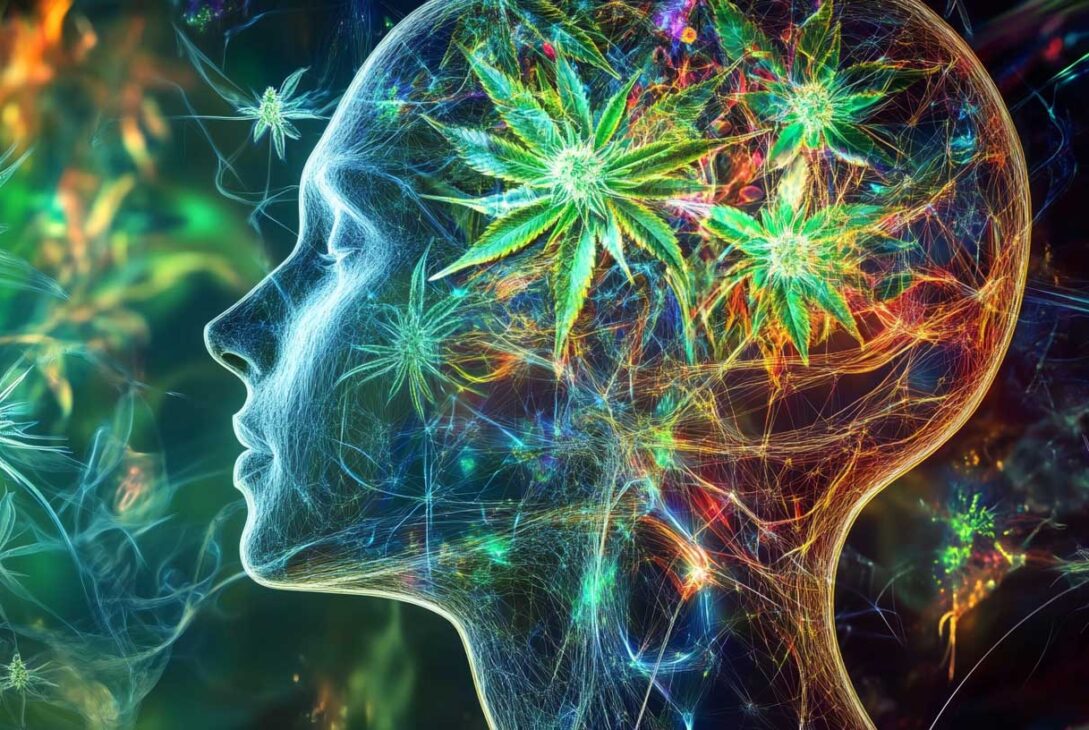Delta-9-tetrahydrocannabinol (THC) has long occupied a prominent position in discussions surrounding cannabis. Most know it for its psychoactive effects, associated with the high experienced by users. However, research is increasingly shedding light on THC’s potentially profound effects on brain processes such as neurogenesis, brain plasticity, and cognition. In this guide, we will delve into these intricate relationships, exploring both the promising benefits and the potential risks associated with THC.
Understanding Neurogenesis
Before diving into THC’s impact on neurogenesis, it’s essential to grasp what this term means. Neurogenesis is the process through which new neurons are formed in the brain. This biological phenomenon primarily occurs in the hippocampus—the part of the brain integral to learning and memory. Neurogenesis is crucial for maintaining cognitive function, emotional health, and overall brain resilience.
THC’s Dual Role in Neurogenesis
THC does not affect neurogenesis uniformly; its influence can vary significantly based on dosage and timing.
- Positive Influences: Some studies have indicated that low doses or microdoses of THC may facilitate neurogenesis. Recent research involving aged rodents showed that a single microdose of THC enhanced the expression of genes related to neuron formation and brain development. Notably, this led to improved cognitive performance and increased neuron density in certain brain regions.
- Negative Influences: Conversely, exposure to higher doses of THC, particularly during critical developmental windows (like adolescence), can disrupt neurogenesis. In studies involving adolescent rats, THC exposure was shown to decrease immature neuronal markers and impair the brain’s ability to adapt and change through learning.
Exploring Brain Plasticity
Brain plasticity – or neuroplasticity – is the brain’s capacity to reorganize itself by forming new connections in response to learning, experience, or injury. This ability is crucial for recovery after trauma and for acquiring new skills.
THC and Its Complex Impact on Brain Plasticity
THC’s effects on brain plasticity similarly reflect a dual nature:
- Positive Adaptive Changes: Microdosing THC has demonstrated potential in promoting adaptive changes in the neural structure. Research indicates that such doses can lead to long-lasting cognitive improvements in aging brains. By enhancing neuroprotection and upregulating genes tied to neuron health, low doses of THC may counteract some hallmarks of brain aging.
- Maladaptive Changes: However, higher doses can engender maladaptive neuroplastic changes. In animal models, prenatal exposure to THC has been linked to alterations in synaptic structure and function, ultimately leading to issues in dopamine signaling and overall plasticity, highlighting how THC can influence developing nervous systems negatively.
THC’s Influence on Neural Development
The effects of THC during key developmental phases raise some of the most critical concerns regarding its use, especially among younger individuals.
- Risks of Developmental Exposure: Research points to significant risks associated with exposure to THC in the womb and during early years. Epidemiological studies have suggested that such exposure can lead to structural and functional changes in the brain, potentially increasing susceptibility to mood disorders and cognitive deficits later in life.
- Differentiating Embryonic and Adult Neurogenesis: While cannabinoids like THC may promote neurogenesis in adults under specific conditions (like microdosing), their impact on embryonic neurogenesis demands caution. Some synthetic cannabinoids have shown potential in promoting neural stem cell proliferation, but the implications remain complex and should be approached with care.
THC, Cognition, and Context
The intriguing relationship between THC and cognitive function is nuanced, with research suggesting that its impacts can differ widely based on several factors:
- Cognitive Enhancements: When considering low doses of THC, findings from animal studies imply enhancements in tasks that require memory and learning. Older mice, subjected to microdosing, demonstrated significant improvements in memory tasks, suggesting that low doses may aid cognitive functions by modulating neuronal pathways.
- Cognitive Impairments: Conversely, higher doses can lead to adverse outcomes, particularly among adolescents. Research indicates that significant THC exposure during critical learning periods impairs cognitive flexibility and memory consolidation. This duality underscores the need for a nuanced understanding of THC’s cognitive effects.
Conclusion
The relationship between Delta-9 THC and brain functions—including neurogenesis, plasticity, neural development, and cognition—is multifaceted, reflecting both potential benefits and risks. While microdoses of THC may enhance certain cognitive functions, particularly in aging individuals, higher doses, especially in developmental contexts, may pose serious risks to long-term brain health.
Key Takeaways
- Microdosing Advantages: Low levels of THC may boost neurogenesis and enhance cognitive functions in older adults.
- Developmental Timing Matters: Adolescents and developing brains may be particularly vulnerable to the adverse effects of THC, warranting caution.
- Individualized Responses: The cognitive effects of THC are highly variable and contingent on dosage and timing, highlighting the urgent need for personalized approaches to THC use.
Next Steps
For those intrigued by the therapeutic potential of THC, proactive engagement with healthcare providers is essential. Staying informed about ongoing research developments is critical for understanding how to harness THC’s potential benefits while mitigating its risks.
Additional Resources
For those interested in diving deeper into the subject matter, consider seeking out:
- Peer-reviewed scientific studies that explore the impact of THC on various aspects of brain function.
- Consultation with healthcare professionals experienced in cannabinoid therapy.
- Educational programs focused on the evolving landscape of cannabis research and its implications for health and wellness.
This exploration into delta-9 THC serves as a reminder of the profound complexity underlying cannabis compounds and their interactions with the most intricate organ in our body—our brain. Each new piece of research offers a step closer to unraveling these mysteries, ultimately empowering informed use of THC and related compounds for health and cognitive well-being.





















